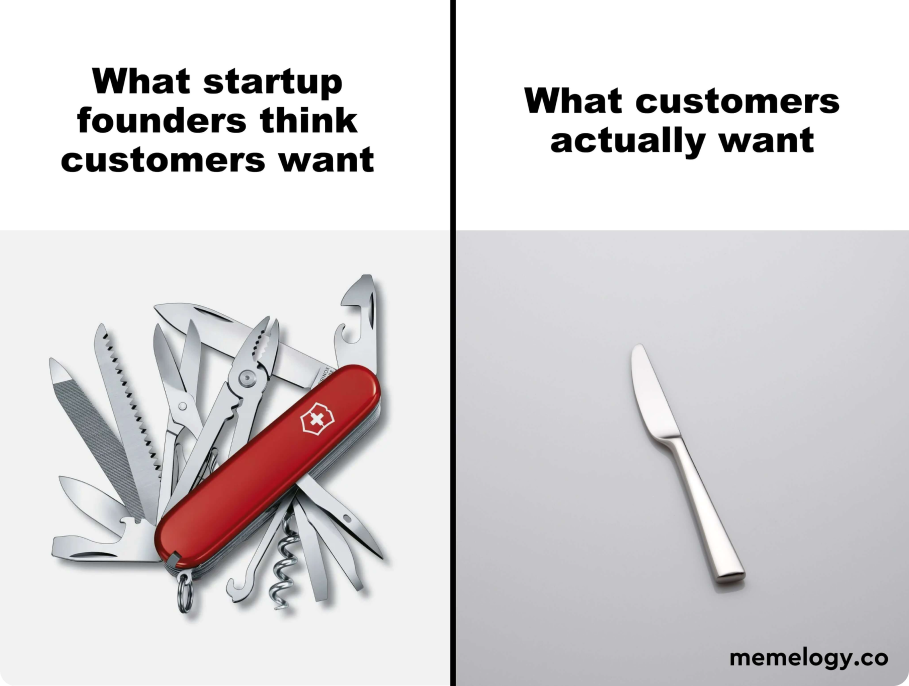Mistakes Often Made by First-Time Founders
In the ever-evolving landscape of entrepreneurship, the journey of a first-time founder is often fraught with excitement, challenges, and crucial learning curves. Bursting with creativity and ambition, these visionaries embark on a mission to revolutionize industries, disrupt markets, and leave an indelible mark on the world. However, amidst the fervor of innovation, there lies a perilous trap that many first-time founders unwittingly stumble into—the God complex.
The God complex, characterized by an inflated sense of self-importance and omnipotence, can lead founders to believe that every idea they conceive is revolutionary and every feature they add is indispensable. This dangerous mindset often manifests itself in the form of feature bloat—a phenomenon where products become bloated with unnecessary functionalities, ultimately diluting their core value proposition.
One of the primary reasons behind feature bloat among first-time founders is their lack of experience in product development and market validation. In their eagerness to impress potential users and investors, they succumb to the temptation of stuffing their product with a plethora of features, believing that more is always better. However, what they fail to realize is that complexity breeds confusion, and an overly cluttered product can alienate users rather than attract them.
Moreover, first-time founders often fall into the trap of assuming they know exactly what their target audience wants without conducting thorough market research or gathering user feedback. This overconfidence leads them to add features based on their own assumptions rather than genuine user needs. Consequently, the product becomes bloated with features that hold little to no value for the end users, resulting in a convoluted and cumbersome user experience.
Another contributing factor to feature bloat is the fear of missing out (FOMO) on competitors' functionalities. In a competitive landscape where innovation is rapid and relentless, first-time founders may feel compelled to incorporate every feature their competitors offer, fearing that their product will be perceived as inferior otherwise. However, blindly emulating competitors without understanding the unique needs of their own target audience only exacerbates the problem of feature bloat.
To avoid falling prey to the God complex and succumbing to feature bloat, first-time founders must adopt a more disciplined and user-centric approach to product development. Here are some strategies they can implement:
1. Market Validation: Before diving headlong into product development, founders should conduct thorough market research to validate their ideas. This involves identifying a genuine pain point or need within a specific target market and ensuring that there is sufficient demand for the proposed solution.
2. Minimal Viable Product (MVP): Instead of attempting to build a feature-rich product from the outset, founders should strive to develop a minimal viable product (MVP) that addresses the core problem in a simple and elegant manner. This allows them to validate their assumptions and iterate based on real-world feedback. Building a successful product is a journey of continuous iteration and refinement. This iterative process allows them to course-correct and pivot as needed, without committing resources to unnecessary features upfront.
3. Resist the Temptation of Feature Creep: Founders must learn to discern between essential features that enhance the core value proposition and extraneous features that add unnecessary complexity. They should resist the temptation to add features for the sake of it and instead prioritize ruthlessly based on user needs and business goals.
4. Cultivate Humility and Openness to Feedback: It's crucial for first-time founders to cultivate humility and remain open to feedback from users, advisors, and mentors. By actively seeking constructive criticism and being willing to pivot based on insights gained, founders can steer clear of the pitfalls of the God complex and foster a culture of continuous improvement.
In conclusion, the journey of a first-time founder is rife with challenges and uncertainties. The God complex and feature bloat are common pitfalls that first-time founders must navigate on their entrepreneurial journey. By adopting a humble, user-centric approach and focusing on delivering value to their target audience, they can avoid these traps and build products that truly make a difference in the world. Remember, in the world of entrepreneurship, less is often more, and simplicity is the ultimate sophistication.


